All the tea by the sea
Specialty tea sales are on the rise in Canada, but Maritimers are slow to stray from traditional black tea.
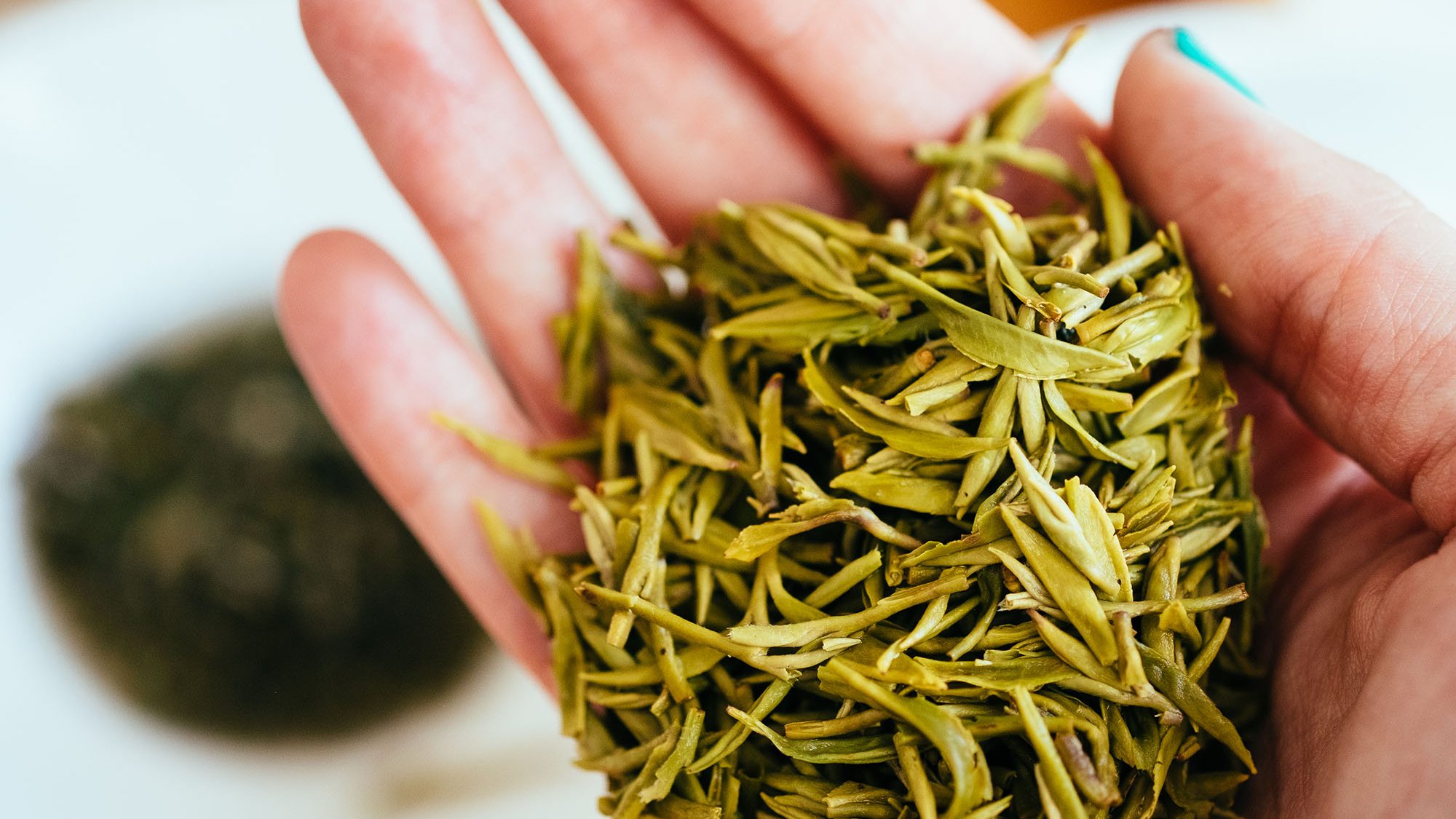
caption
This is Baihao Yinzhen, also known as White Hair Silver Needle tea. It's a white tea and is considered a 'specialty tea'.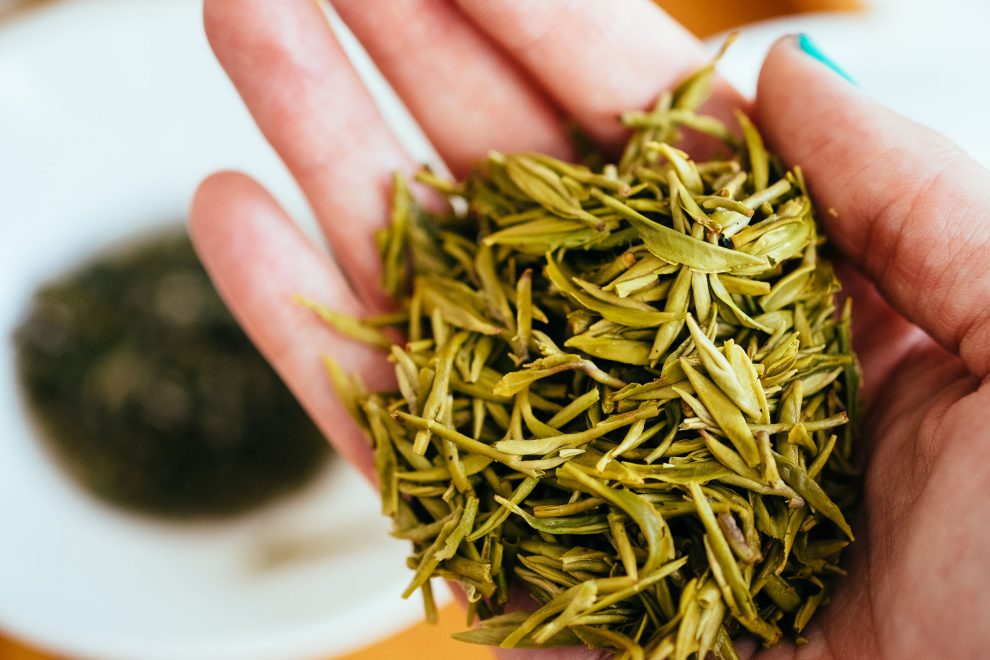
caption
This is Baihao Yinzhen, also known as White Hair Silver Needle tea. It’s a white tea and is considered a ‘specialty tea’.Phil Holmans took a knock to the head at just the right time.
“Some people need motivation to follow their passion. They need something to happen in their life to push them to do something that they really love, and that was my push.”
He’s talking about a workplace accident that nearly paralyzed him, but made him decide to give up a career in finance and pursue his love of tea.
“I had an injury in a storage room —I was basically in there making X’s on hundreds of boxes to be shredded and there was this wall full of banker boxes, and I bumped into one and it wasn’t secured. It collapsed on me and it basically crushed me to the concrete floor. I had multiple impacts to my skull and some spine trauma.”
As fate would have it, the accident came at the perfect time. Holmans opened World Tea House on Argyle Street in Halifax later that year in 2010, during a spike in the upward trend of the Canadian tea market, and right before the first David’s Tea opened in Halifax.
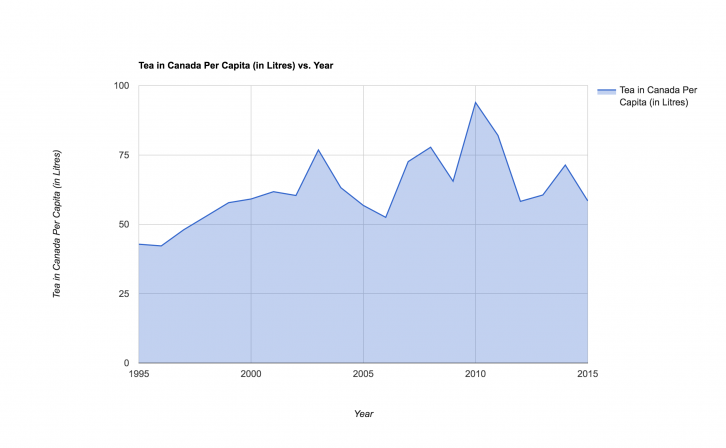
caption
According to data collected from Stats Canada, tea consumption in Canada has been on the rise for the past twenty years.Holmans had the idea for a tea shop for years, “I went to university in the early 90s for business at Saint Mary’s. I looked at opening up my first tea house, but that’s when Starbucks started moving into town. The coffee industry was booming — the tea industry was just flat. There were tea houses going out of business left right and centre.”
His obsession with tea started early. He was born in Goose Bay, Labrador. His family was military and when he was five years old they moved to Germany.
“Because Dad traveled a lot — Asia, the Middle East and everything — he would always bring home tea…. We lived in a rural area so mom dried herbs. Our counter looked like my shop’s counter now — big mason jars full of herbs and tea. So that’s what I grew up with. That’s how we made tea in my house and we never really had tea bags until I came back to Canada and was exposed to this Red Rose stuff and was ripping open the tea bags like, ‘What is this dust? I don’t understand.'”
A tea obsession
During the recovery from his accident, the tea obsession resurfaced.
“It was kind of just something for me to do because I was bored as hell. I was sitting at home and I couldn’t do a lot of visual stuff because I had a very bad optical injury as well, so I couldn’t do bright lights, I couldn’t watch TV, I couldn’t read, I couldn’t do anything. So drinking tea and talking about tea and everything was what I did for several months.”
So World Tea House began with Holmans selling at the Seaport Farmer’s market during his recovery period. The doctors told him he wouldn’t be able to do anything for two years, but he was back to his old accounting job within 10 months.
Back at his old job, “I didn’t have the passion for it. I didn’t have a passion for accounting anyhow because it’s accounting, but I wasn’t good at it anymore. I couldn’t’ do numbers… And I said, ‘well, I have to do something.'”
So he left finance and turned World Tea House into a full-time gig. Sitting in his shop, he shows a video of him sitting on a mat in a small organic tea farm in India, kneading a ball of wet, green tea leaves by hand.
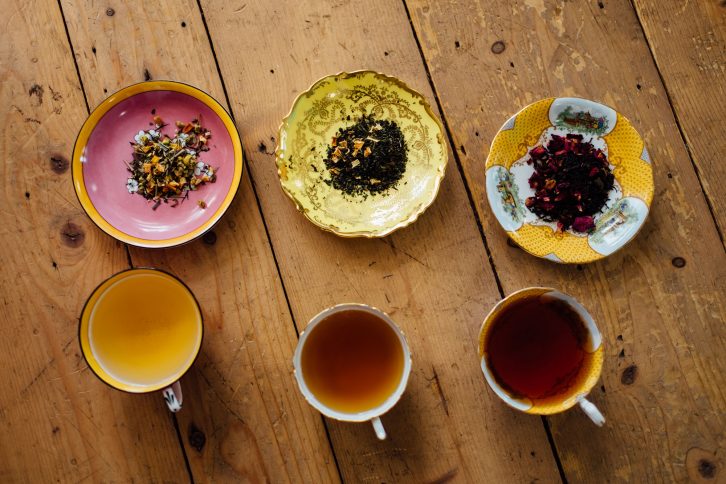
caption
An herbal, green and black loose-leaf tea compared side by side.A rising tide
According to an analysis of Statistics Canada data, Canadian tea consumption has been steadily increasing for 20 years. A boom in specialty teas from stores likes David’s Tea have been leading the increase in consumer spending.
Specialty teas come in a variety of colours, and unlike traditional brands such as Red Rose or Tetley, they are not black and in a tea bag.
Although the East Coast is home to some of the most prolific tea drinkers in the country — we each drink about 9.8 cups per week on average compared to 6.6 cups to the rest of the country — the specialty tea boom happening around Canada has been slower to pick up speed on the east coast.
Here’s a video explainer on why that is.
Holmans at World Tea House on Argyle street also acknowledges the strong tradition of a cup of black tea in the morning for most Maritimers.
“We do have some converts,” he says, “but I think a lot of people with our teas, since it’s a little bit higher price point than your Costco pack of Tetley, drink our tea for occasion tea and will drink their Tetley for their everyday-morning, get-the-caffeine-in-me type thing. I’m okay with that… I mean, my family’s the same way. I’m from Labrador and my father has access to some of the best tea in the world – literally – through my shop, and I still go into his house, open up his cupboard and I’m like, ‘Dad, really. You have Tetley in your cupboard,’ and he’s like, ‘It’s for company’ and I’m like, ‘No it’s not. Don’t lie to me’,” he jokes.
The impact of David’s Tea
Different tea shops around the Maritimes have different markets. Some focus on herbal infusions, some focus on medicinal aspects. David’s Tea has fun flavours like ‘Jumpy Monkey’ and ‘Birthday Cake’. They look and sound like ice cream flavours.
Both Holmans and Gwen Smith, owner and co-founder of The Tea Brewery in Mahone Bay, Nova Scotia, feel that both the purchase of Teavana by Starbucks in 2012 for a cool $620 million and the emergence of David’s Tea in Canada has helped independent retailers immensely.
“So back in the 90s everyone was tea bags, tea bags, tea bags. That was the big thing, That’s what everyone was exposed to. That’s what everyone had for a generation. So I think the emergence of Teavana purchased by Starbucks, and then David’s tea exploding across Canada really pushed that loose-leaf tea – even though it was low quality – into popularity.” says Holmans, “They’re like the gateway to loose tea.”
From there, says Holmans, “(Consumers) discover artificial flavours, they discover additives and they want something more authentic. So they find someone like me.”
Holmans niche is organic, “Out of 120 teas, we have four that are not certified, but it’s because they’re from a small farm and they just can’t afford [to be certified]. But they’re all grown organically. We have them all tested as well.”
In Mahone Bay, Smith’s point of view is, “I’d have to say that David’s Tea really helped us out a lot. Because, of course, the deep pockets they have — people started recognizing tea as something that was great to be getting into and then they move on to us because they wanted local or they wanted something different.”
Tea’s future in Halifax
One thing Holmans has going for him is that his customers won’t be growing too old.
“Our customers are young. Sixteen-to-25 (is) a huge growth market for us. Those are the ones (who) are educated. They’re passionate. Most of our staff fall into that age range, and they’re just into it. They want to learn, want to experiment, want something out-of-the box.”
He says they also get some older people who might come for the nostalgia of loose-leaf tea, and his smallest customer group is people his own age — around 35—50.
He says the independent tea community in Halifax is a good place to be. “It’s a community, it’s not a competition. Well, it is a competition in that we’re all fighting for that piece of pie, but there’s this idea that the more we collaborate and do interesting things — the bigger the pie gets.”
When he thinks about the future of tea in Halifax, he sees,”tea houses, tea cafes. I see restaurants happening that are based off tea cooking. It’s happened in Toronto. It’s happened in Vancouver. It’s just moving into Halifax. We’re kind of on the cusp of that.”
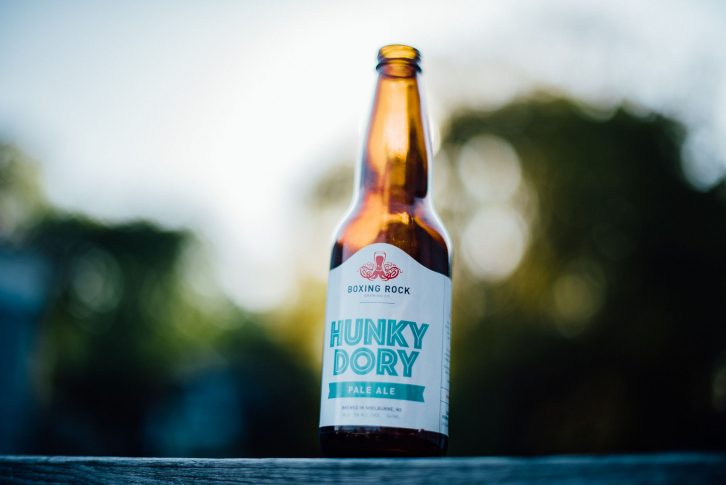
caption
Boxing Rock’s Hunky Dory contains green tea from World Tea House.World Tea House has teas in East of Grafton, the French bistro, all the Smiling Goats. They’ve done partnerships with Boxing Rock brewery and have more collaborations in the works.
Although the construction of the city’s new Nova Centre just outside his front door has meant a hard couple of years, paid in the form of broken shelves and cracked floors, overall when he thinks about tea, he says the future looks bright.
Specialty tea shops in Halifax and Dartmouth
If you’re feeling inspired to steep, Holmans at World Tea House recommends their Doke Black Fusion. It comes from a tea farm in India he spent time working at, “the owners are fantastic people and that comes through in their product as well,” he says.
In Mahone Bay, Smith says people come from all over to try their Tranquility Bay blend. Pete’s Frootique and Pavia stock it, but often run out and she says people will make the hour-long journey by car to The Tea Brewery, “just to top up.”
About the author
Mel Hattie
Mel Hattie is a travel journalist from Canada's east coast. She's currently in the MJ New Ventures stream at the University of King's College....
